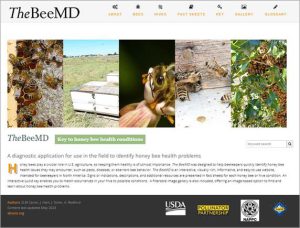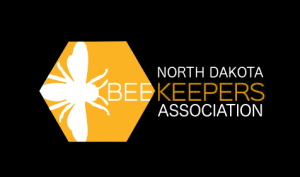
Yellow-Legged Ledger
The Department’s Plant Protection Division team has been hard at work – finding and swiftly eradicating 3 Yellow-legged hornet’s nests over a 24-hour period…
Read More
The Department’s Plant Protection Division team has been hard at work – finding and swiftly eradicating 3 Yellow-legged hornet’s nests over a 24-hour period…
Read More
The Alabama Extension beekeeping team presents the At Home Beekeeping Series. This online series promotes educational information for beekeepers. This gives beekeepers the chance…
Read More
Episode 174: Hygiene-Elicting Brood Semiochemicals as a Tool for Assaying Honey Bee Colony Resistance to Varroa In this episode of Two Bees in a…
Read More
Wind and water cause chemical pesticides to accumulate in bee-collected pollen and wax The United States is home to more than 4,000 types of…
Read More
By: Zachary Lamas Varroa largely feed on developing drone brood and on adult bees when drones are seasonally plentiful inside of a honey bee…
Read More
USDA Animal and Plant Health Inspection Service’s Identification Technology Program (ITP), in collaboration with Pollinator Partnership, is pleased to announce the release of The BeeMD, a…
Read More
ARS News Service Pearl Millet Wins Approval From Honey Bees and Other Pollinators USDA – For media inquiries contact: Jessica Ryan, (301) 892-0085 Pearl…
Read More
By: Dr. Tracy Farone Honey bees are one of the most important agricultural animals on Earth. These tiny creatures often fly around unnoticed, doing…
Read More
Episode 173: The Nutritional Landscape in Agroecosystems In this episode of Two Bees in a Podcast, released on July 16, 2024, Dr. Jamie Ellis…
Read More
Please accept our invitation to attend! The North Dakota Beekeepers Assn. [NDBA] Annual Meeting will be Friday, September 27, in Minot, N.D.: The Grand…
Read More
By: Devon Zapatka As a student in beekeeping working for The Humble Bee Honey Company, I adore the warm weather. As I move into…
Read More
NIFA has announced more than $5.7 million in funding for 10 projects as part of the Pollinator Health: Research and Application program. The program supports projects…
Read More
University of Montana Summer Intermediate Beekeeping Camp, UM and Fort Missoula, July 27-28th. https://www.umt.edu/bee/summer-field-days.php We are finishing development and delivery of our new, OnLine…
Read More
S2E4: Insect Pollination: It’s Not Just Bees! In the last decade there has been a HUGE (& successful) push for people to appreciate bees…
Read More
Episode 172: Breeding for Varroa Resistance In this episode of Two Bees in a Podcast, released on July 9, 2024, Dr. Jamie Ellis and…
Read More
The findings revealed regional occurrences of amitraz resistance, with a less severe decrease in treatment efficacy compared to other pesticides. Notably, the genetic analysis showed…
Read More
By: Pierre Lau This article was originally published in Entomology Today. This article is part of the “Standout ECPs” series contributed by the Entomological…
Read More
Driven by a commitment to meet the evolving needs of beekeepers worldwide, HiveAlive EZ Feed Super Syrup has emerged as a solution to simplify…
Read More
By: Robert Page This Article, “The Art of the Bee” By Robert Page was originally published on the OUPblog In June 1799, Alexander von…
Read More
Behind every new discovery is a story, and we want to hear it! This year, Project Apis m. will give out our first-ever ‘Bellows Award’ for…
Read More